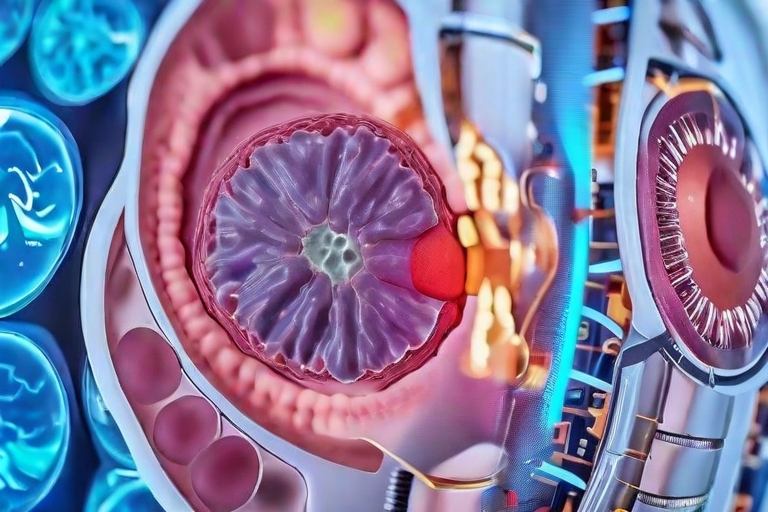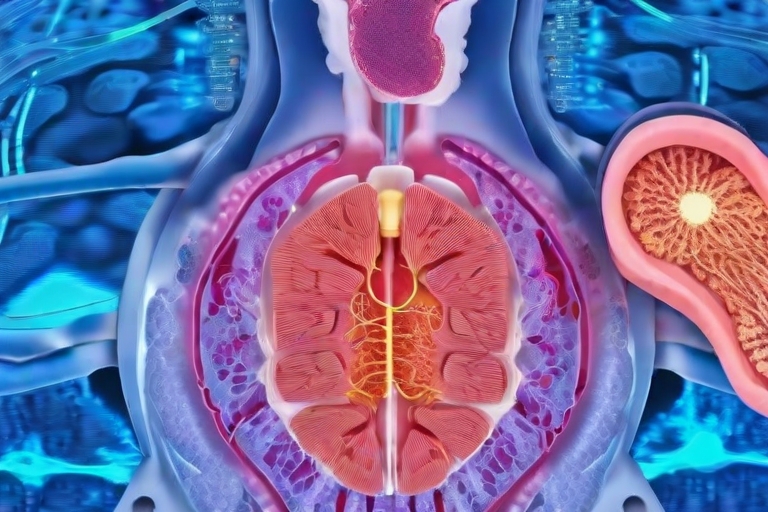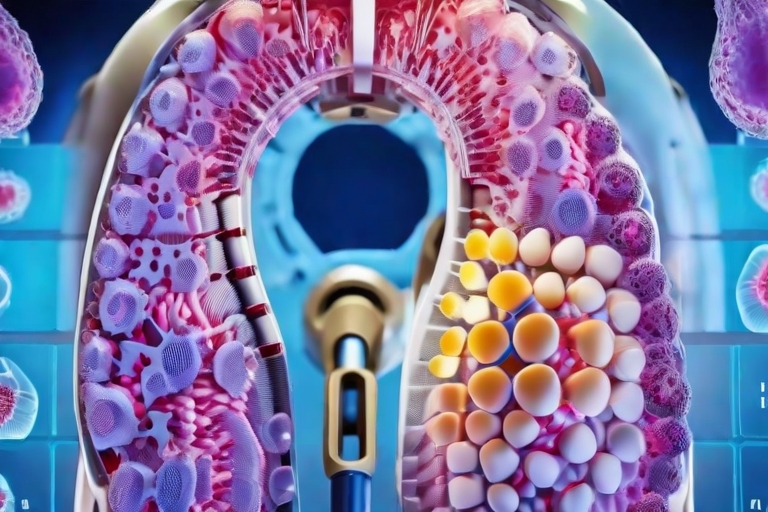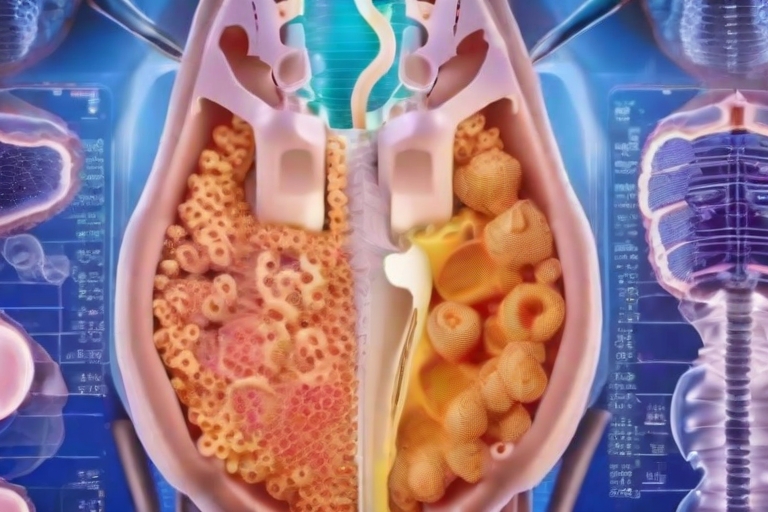1. Automated Tissue Analysis:
Efficiency: The AI tool automates the analysis of colorectal cancer tissues, reducing the time and effort required for pathologists to examine samples manually. It is capable of swiftly and effectively processing massive amounts of data.
Accuracy: AI-driven analysis offers high accuracy, minimizing the risk of human error in identifying cancerous cells and providing reliable diagnostic results.
2. Improving Diagnosis and Treatment:
Early Detection: Accurate and swift analysis can lead to early detection of colorectal cancer, enabling timely intervention and improved patient outcomes.
Personalized Treatment: Precise analysis assists oncologists in determining personalized treatment plans tailored to the specific characteristics of the cancer, enhancing the efficacy of therapies.
3. Large-Scale Screening:
Population Health: Automated analysis facilitates large-scale screening programs, allowing healthcare systems to efficiently screen a larger number of patients for colorectal cancer, especially in high-risk populations.
Resource Optimization: By automating routine tasks, healthcare professionals can focus on more complex aspects of patient care, optimizing healthcare resources.
4. Deep Learning Algorithms:
Sophisticated Algorithms: Deep learning algorithms, a subset of AI, enable the system to recognize patterns and nuances in tissue samples that might be challenging for the human eye, enhancing the diagnostic capabilities.
Training and Validation: These algorithms are trained on extensive datasets and validated to ensure their accuracy and reliability in identifying cancerous tissues.
5. Challenges and Ethical Considerations:
Validation and Regulation: Ensuring the AI tool's accuracy and reliability through rigorous validation processes is crucial. Ethical considerations, patient privacy, and regulatory compliance are paramount in the development and deployment of such technologies.
Human Oversight: While AI can significantly aid pathologists, human oversight and expertise remain essential to interpret complex cases and make nuanced decisions based on patient history and clinical context.
Researchers have created AI-based tools for the automated tissue analysis of colorectal cancer.
A team of scientists from the University of Jyväskylä, the Institute of Biomedicine at the University of Turku, and Nova Central Finland have created an AI system that can automatically analyze tissue samples for signs of colorectal cancer. The improved neural network performs better than any of the prior approaches. Colorectal cancer tissue pictures on microscope slides may be more accurately classified using neural networks. This may greatly lessen the burden on histopathologists, allowing for quicker analysis, prognosis, and diagnosis.
Open to the public for the benefit of future developments
The researchers are making the trained neural network technology accessible to the public as a major gesture toward open science and collaborative progress. The hope is that by doing so, scientists, academics, and developers from all around the globe will work to improve its capabilities and explore new uses, thereby fostering future growth.
Fabi Prezza, who oversaw the methodology's development, said that, "by providing universal access, the goal is to achieve rapid progress in colorectal cancer research."
It is crucial to conduct rigorous clinical validation.
Although encouraging, a measured approach to using AI in healthcare settings is essential. The effectiveness of AI-driven techniques relies heavily on the quantity and variety of medical data available. To guarantee that these AI solutions provide outcomes that are always in line with clinical standards as they move toward normal clinical use, it is crucial that they undergo thorough clinical validation.



